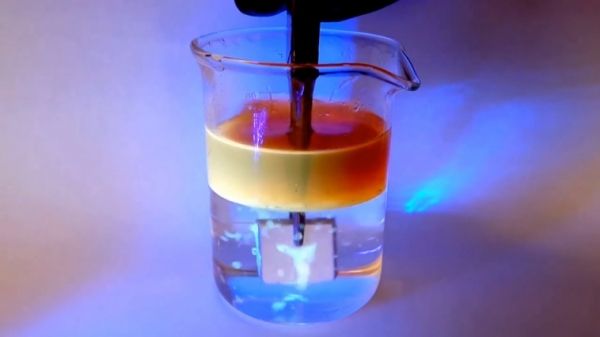Metal-air batteries are one of the lightest and most compact types of batteries available, but they can have a major limitation: When not in use, they degrade quickly, as corrosion eats away at their metal electrodes. Now, MIT researchers have found a way to substantially reduce that corrosion, making it possible for such batteries to have much longer shelf lives.
While typical rechargeable lithium-ion batteries only lose about 5 percent of their charge after a month of storage, they are too costly, bulky, or heavy for many applications. Primary (nonrechargeable) aluminum-air batteries are much less expensive and more compact and lightweight, but they can lose 80 percent of their charge a month.
The MIT design overcomes the problem of corrosion in aluminum-air batteries by introducing an oil barrier between the aluminum electrode and the electrolyte — the fluid between the two battery electrodes that eats away at the aluminum when the battery is on standby. The oil is rapidly pumped away and replaced with electrolyte as soon as the battery is used. As a result, the energy loss is cut to just 0.02 percent a month — more than a thousandfold improvement.
Read more at Massachusetts Institute of Technology
Image: Researchers demonstrating the ability of aluminum to repel oil underwater. Courtesy of the researchers


